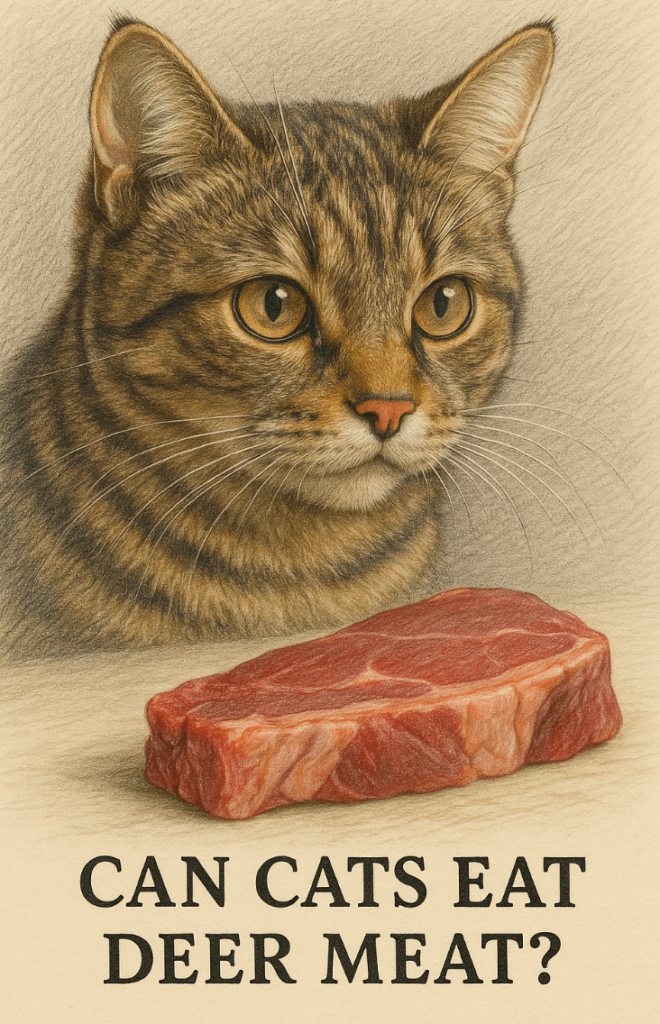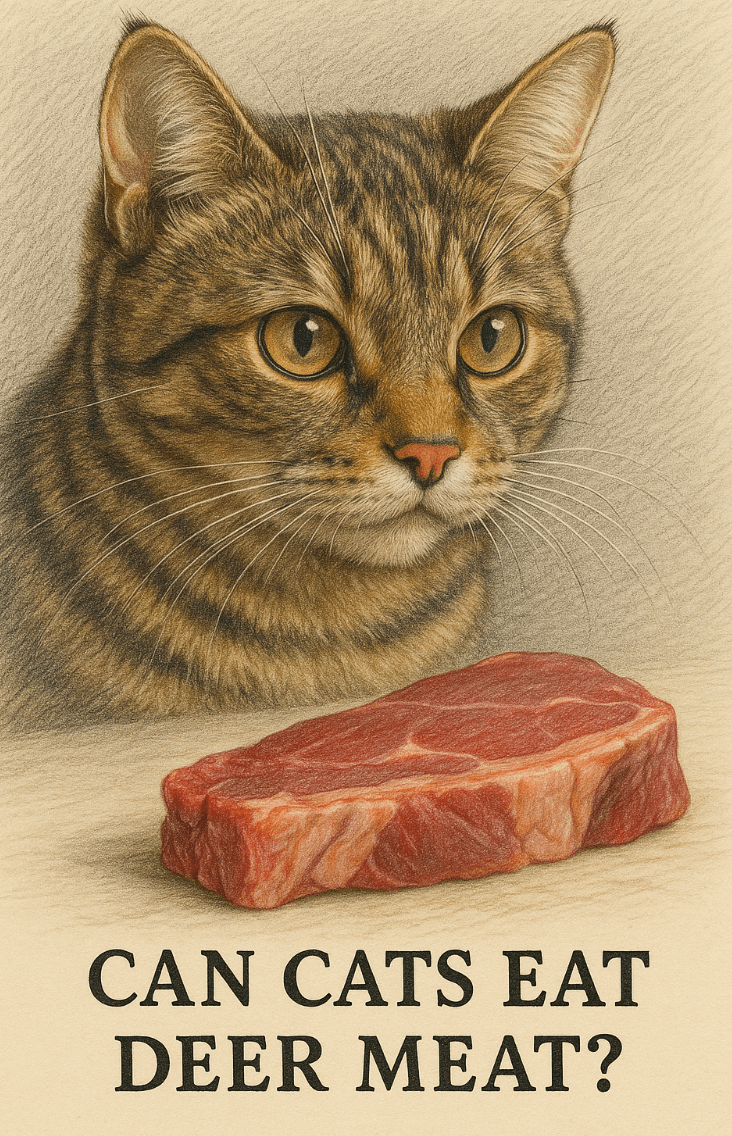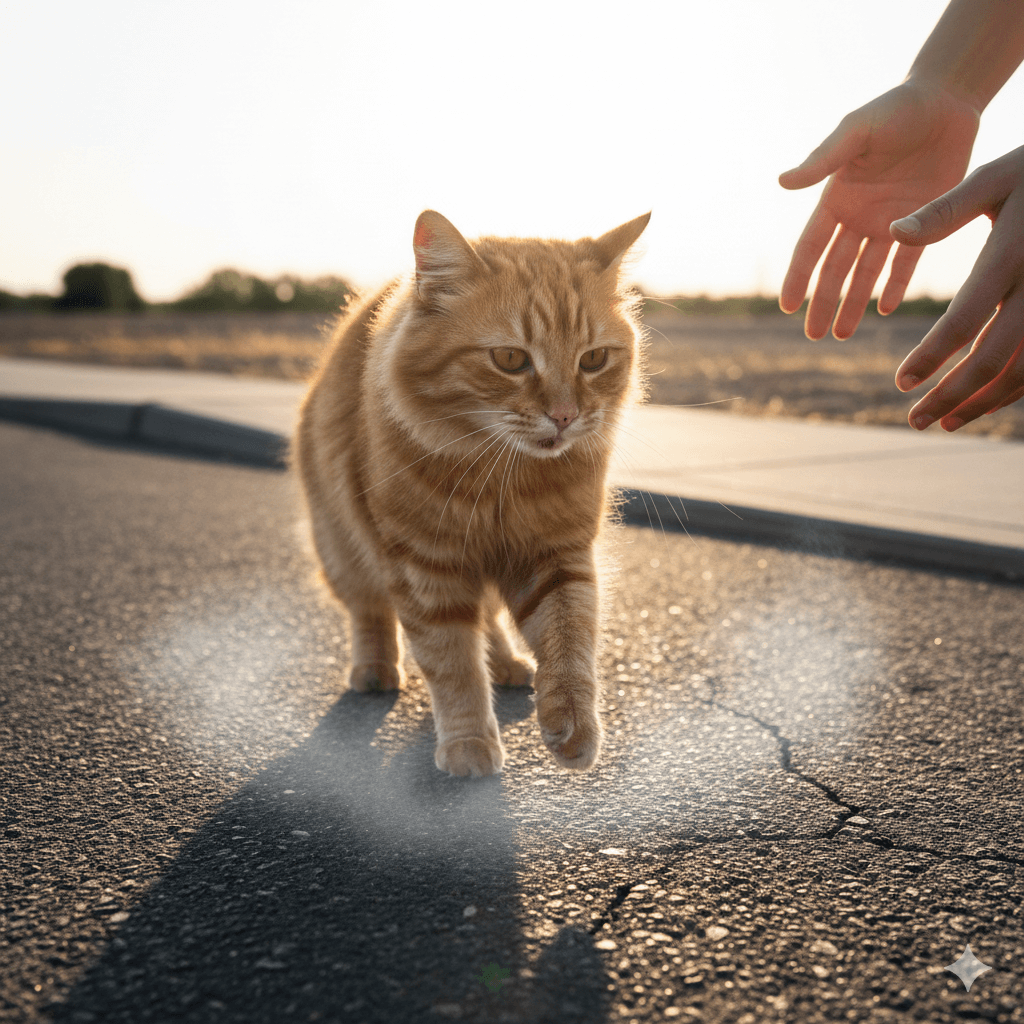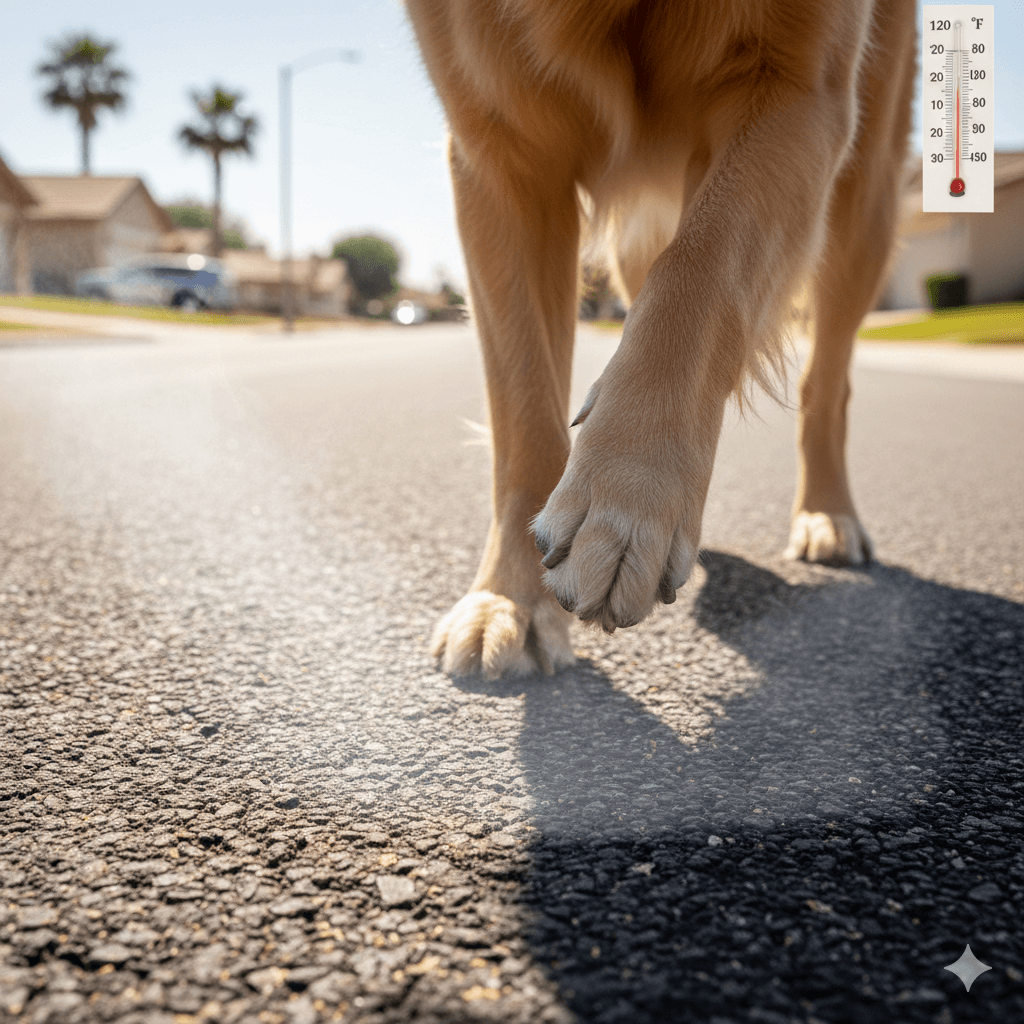Can Cats Eat Deer Meat?
Deer meat, also known as venison, is a lean and protein-rich food that many humans enjoy. But what about our feline companions? As obligate carnivores, cats thrive on animal-based proteins, making deer meat an intriguing option for their diet. However, before introducing this novel protein to your cat’s meals, it’s important to understand the potential benefits, risks, and preparation methods involved. In this blog post, we’ll explore whether deer meat is safe for cats, how to serve it responsibly, and what precautions you should take to ensure your cat’s health and happiness. Whether you’re considering venison as a treat or a dietary staple, this guide will help you make informed decisions.
Benefits of Feeding Deer Meat to Cats
When prepared and served correctly, deer meat can offer several nutritional advantages for cats. Its high-quality protein and low-fat content make it an appealing choice for feline diets.
Rich in Protein:
Venison is packed with essential amino acids that support muscle development, tissue repair, and overall vitality.Low in Fat:
Compared to other meats like beef or lamb, deer meat is leaner, reducing the risk of obesity and related health issues.Novel Protein Source:
For cats with food allergies or sensitivities, venison can serve as a hypoallergenic alternative to more common proteins like chicken or fish.High in Iron and Zinc:
These minerals are crucial for maintaining healthy blood cells, immune function, and skin health in cats.Free from Additives (When Fresh):
Unprocessed deer meat avoids artificial preservatives, making it a natural choice for your cat’s diet.
While these benefits make deer meat an attractive option, it’s essential to ensure proper preparation to avoid potential risks.
Risks of Feeding Deer Meat to Cats
Although deer meat can be nutritious, there are certain risks associated with feeding it to your cat. Being aware of these dangers helps you take preventive measures.
Bacterial Contamination:
Raw or improperly handled venison may contain harmful bacteria like Salmonella or E. coli, which can sicken both cats and humans.Parasites:
Wild deer meat can harbor parasites such as tapeworms or roundworms, posing serious health risks if not cooked thoroughly.Overfeeding Lean Meat:
A diet too high in lean protein without adequate fat can lead to nutrient imbalances or deficiencies over time.Bone Fragments:
If bones are included, they can splinter and cause choking hazards or internal injuries.Allergic Reactions:
While rare, some cats may develop allergies or digestive upset when introduced to a new protein source.
By understanding these risks, you can take steps to minimize them and ensure your cat enjoys deer meat safely.
Check this guide 👉Can Cats Eat Blue Cheese? Best 7 Expert Tips!
Check this guide 👉Can Cats Eat Kiwis? Best 7 Expert Tips!
Check this guide 👉Can Cats Eat Mealworms? Best 7 Expert Tips!

Safe Practices for Feeding Deer Meat | Potential Risks to Avoid |
|---|---|
Always cook venison thoroughly | Feeding raw or undercooked meat |
Remove all bones before serving | Including seasoning or spices |
Serve in moderation as part of a balanced diet | Overfeeding lean protein exclusively |
Consult your veterinarian first | Ignoring signs of digestive distress |
Use fresh, high-quality cuts | Feeding processed or preserved venison |
How to Safely Prepare Deer Meat for Your Cat
Proper preparation is key to ensuring deer meat is safe and nutritious for your cat. Follow these guidelines to minimize risks and maximize benefits.
Choose High-Quality Cuts:
Opt for fresh, organic venison from reputable sources to reduce exposure to contaminants or parasites.Cook Thoroughly:
Cook the meat until it reaches an internal temperature of at least 165°F (74°C) to kill any bacteria or parasites.Avoid Seasonings:
Do not add salt, garlic, onions, or other seasonings, as these can be toxic to cats.Cut into Small Pieces:
Serve small, bite-sized portions to prevent choking and make it easier for your cat to eat.Introduce Gradually:
Start with small amounts to monitor your cat’s reaction and ensure they tolerate the new food well.
By following these steps, you can safely incorporate deer meat into your cat’s diet while minimizing potential risks.
Signs Your Cat May Not Tolerate Deer Meat
Even with careful preparation, some cats may not tolerate deer meat well. Watch for these warning signs to act quickly if something goes wrong.
Vomiting or Diarrhea:
These symptoms may indicate gastrointestinal upset or an allergic reaction to the new protein.Loss of Appetite:
If your cat refuses to eat after trying deer meat, it could signal discomfort or dislike.Excessive Drooling:
Drooling might suggest nausea or irritation caused by consuming venison.Lethargy or Weakness:
A sudden lack of energy could indicate a more serious issue, such as bacterial infection.Itching or Skin Irritation:
Allergic reactions may manifest as itching, redness, or swelling around the face or paws.
Recognizing these signs early allows you to consult your vet promptly and adjust your cat’s diet accordingly.
Common Mistakes to Avoid When Feeding Deer Meat
Feeding deer meat to your cat requires caution to avoid mistakes that could harm their health. Here are some pitfalls to watch out for.
Feeding Raw or Undercooked Meat:
Raw venison carries significant risks of bacterial contamination and parasites; always cook it thoroughly.Adding Harmful Ingredients:
Spices, herbs, or sauces commonly used in human recipes can be toxic to cats; stick to plain, unseasoned meat.Ignoring Portion Control:
Overfeeding venison disrupts nutritional balance; serve it as a supplement rather than a primary food source.Skipping Veterinary Guidance:
Failing to consult your vet increases the risk of dietary imbalances or adverse reactions.Using Processed Venison Products:
Pre-packaged venison may contain additives or preservatives unsafe for cats; opt for fresh cuts instead.
Avoiding these mistakes ensures a safer and healthier experience for your cat.
Alternatives to Deer Meat for Cats
If deer meat isn’t suitable for your cat or you’d like to explore other options, there are plenty of alternatives that provide similar nutritional benefits.
Chicken or Turkey:
These lean meats are widely available and easy to prepare, making them excellent staples for feline diets.Duck or Rabbit:
Novel proteins like duck or rabbit can serve as hypoallergenic alternatives for cats with sensitivities.Beef or Lamb:
While higher in fat, these meats can be fed in moderation as occasional treats.Fish (in Moderation):
Fish like salmon or tuna offers omega-3 fatty acids but should only be given occasionally due to mercury risks.Commercial Cat Food with Venison:
Some brands offer high-quality cat food featuring venison as a primary ingredient, ensuring balanced nutrition.
Exploring these alternatives allows you to cater to your cat’s preferences while maintaining a varied diet.
Understanding Your Cat’s Dietary Needs
Cats have unique dietary requirements as obligate carnivores, meaning they rely heavily on animal-based proteins. Understanding their needs helps you make better choices when introducing foods like deer meat.
High Protein Requirement:
Cats need diets rich in animal protein to support muscle maintenance, energy production, and overall health.Essential Amino Acids:
Taurine, found in meat, is critical for heart, vision, and reproductive health; deficiencies can lead to severe health issues.Limited Carbohydrates:
Unlike humans, cats don’t require carbs and derive most of their energy from fats and proteins.Hydration Through Food:
Wet or moisture-rich foods help prevent dehydration, especially since cats often don’t drink enough water.Balanced Nutrient Ratios:
A complete diet includes vitamins, minerals, and fatty acids in appropriate proportions to meet your cat’s needs.
By aligning your feeding practices with these principles, you can ensure your cat thrives on a diet tailored to their biology.
Frequently Asked Questions About Cats and Deer Meat
Is deer meat safe for cats?
Yes, when properly cooked and prepared, deer meat can be a safe and nutritious addition to your cat’s diet.
Can I feed my cat raw deer meat?
No, raw venison poses risks of bacterial contamination and parasitic infections; always cook it thoroughly.
How often can I feed my cat deer meat?
Limit venison to occasional treats or rotate it with other proteins to maintain a balanced diet.
What if my cat doesn’t like deer meat?
Not all cats enjoy venison—try other novel proteins like duck or rabbit if needed.
Should I consult my vet before feeding deer meat?
Absolutely! Your vet can provide personalized advice based on your cat’s health and dietary needs.
Making Informed Choices About Deer Meat for Your Cat
Feeding deer meat to your cat can be a nutritious and rewarding experience if done responsibly. By understanding the benefits, risks, and proper preparation methods, you can safely introduce this novel protein into your cat’s diet. Always prioritize your cat’s health by consulting your veterinarian and monitoring their response to new foods. With care and attention, you can provide your feline friend with a varied and balanced diet that keeps them happy, healthy, and thriving.
Newfoundland Dog Personality: Best 7 Expert Tips! – Discover the gentle, loyal, and protective nature of this giant breed perfect for families.
Can Hot Pavement Burn Your Cats Paws? Best 7 Expert Tips! – Learn how to protect your cat’s paws from hot surfaces and prevent painful burns this summer.
Can Hot Pavement Burn Your Dogs Paws? Best 7 Expert Tips! – Learn how to protect your dog’s paws from hot surfaces and ensure safe summer walks.
Irish Wolfhound Size: Best 7 Expert Tips! – Discover the ideal height, weight, and care tips for this majestic giant breed. Learn how to manage their impressive stature responsibly.





